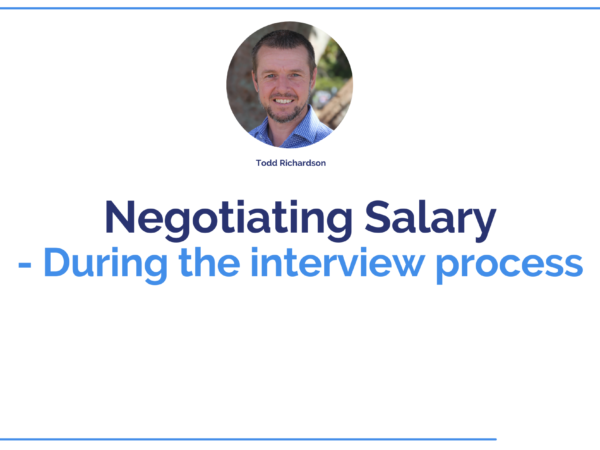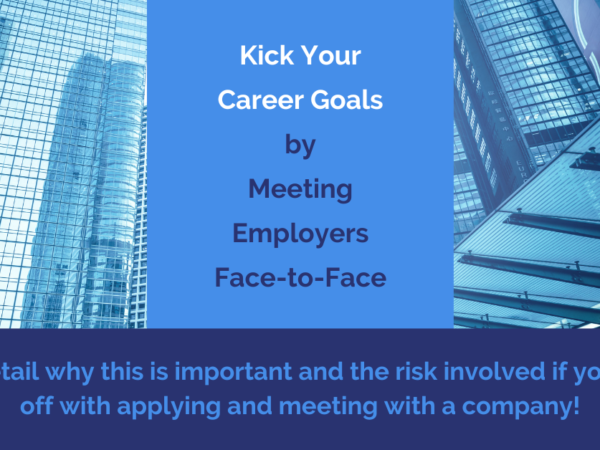Here’s the general scenario: Your manager / mentor / colleague who you work really well with is leaving the business or has left and wants you to join them at the new company. It’s tempting, as your current workplace won’t feel the same to you without them, or you too have felt your current business is no longer the best environment for you anymore. So what could possibly go wrong, right?

Over the past 24 months, we’ve seen many people moving via their own networks as per the scenario above. From our experience, this can actually hold you back, as there may be less benefit to your career, particularly for people in the middle of their careers, when working with the same people repeatedly. Just because it’s the right move for your colleague doesn’t mean it’s necessarily the right one for you.
Let’s explain why from a couple of different angles.
Are you growing?
A common scenario of joining people you’ve worked with before is twofold. The first is you are inadvertently putting a glass ceiling over your head. Once again you’re working under the same manager in a similar role and quite often unless your manager gets promoted you have put a stop to your own progression. The second risk in this scenario is that you’re working with the same people offering the same ideas and skill sets they were teaching you 12 months ago. As a result, your professional development slows down.
Progressing too quickly
What can happen is that a person who is good at what they do eg. a Site Engineer, is asked to join a former manager at another company for the very reason they know the person is good. But what’s happening is that the Site Engineer will often say they will only move if offered a more senior position. In this scenario, there is the real risk of stepping ahead too quickly, and they may not have the proper grounding yet to make that move. Progressing too quickly can often cause as many problems for a person’s long-term career as progressing too slowly.
So as you can see from the two examples above, it may not be in your career’s best interest just to keep following your manager / mentor / colleague.
Other reasons
There can be other reasons as well. For example, when you work with mates, there can be less constructive feedback which can reduce your ability to develop or identify areas of improvement, which can affect your career progression. Also, you could miss out on opportunities as you’ll be competing against mates for the same positions and may not want to put yourself forward for roles, creating stress in the friendship simultaneously. There are also variances between working for large versus small builders. Some of these variables will align better with certain personalities and career goals than others, so it’s recommended to research and weigh up these pros and cons for your career. To help you, we’ve covered this topic in two parts PART 1, PART2.

Is being comfortable great?
Yes, it often feels more comfortable to follow, but if you’re making a move, it may be best not to feel 100% comfortable, otherwise you’re not pushing yourself to develop new skills in new ways. Being fully comfortable means you aren’t growing, and others will progress ahead of you as you risk becoming insulated in what you’re doing.
So, being a little bit uncomfortable at all times in your career is a good thing. The trick is to manage it so that you’re not taking on so much that you’re feeling too uncomfortable, just enough discomfort to keep the challenges and new skills flowing. The more you do this, the more you’ll grow in confidence, as you’ll be able to tackle something new without being fearful of the unknown.
The benefits of following your own career path
Suppose you decide to stay at your current employer after your manager / mentor/ colleagues have left. In that case, you can show your existing employer that you can accept change and adapt, which may give you more options for learning and promotion where you currently are.
If you want to move on, but not just follow others, the biggest benefit of going to a different place is that when you’re working with new people, you’re gaining new ideas, a new way of doing things and that’s where your skills really develop a lot more – you’ll be seeing things through fresh eyes, rather than stagnating doing things only one way.
Looking for your next construction job? Search our current construction roles here, or to chat to our team about securing your next opportunity, get in contact with us through our Contact Us page.
Receive our updates straight to your inbox



